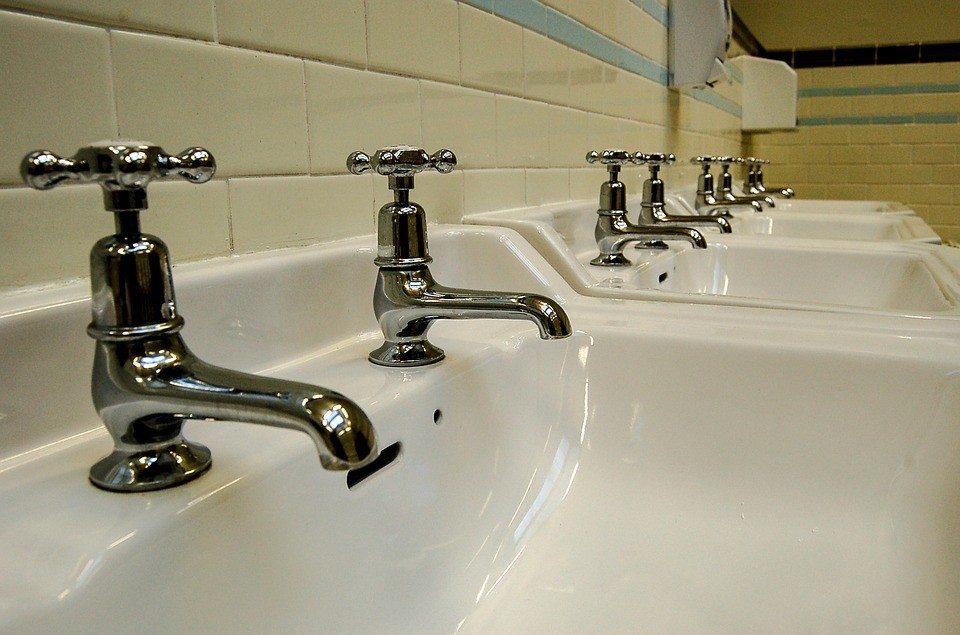Labor & Economy
West Virginia Wants Its Water Back
“No whining, no griping, pull yourself up by your bootstraps.” That’s how Susan Story describes the hard lessons she learned growing up in rural Alabama. Then why is the corporation she leads as chief executive officer, American Water, complaining about opposition to its plans in West Virginia?

“No whining, no griping, pull yourself up by your bootstraps.” That’s how Susan Story describes the hard lessons she learned growing up in rural Alabama.
Then why is the corporation she leads as chief executive officer, American Water, complaining about opposition to its plans in West Virginia?
The president of its subsidiary there has said the corporation is “between a rock and a hard place.” Faced with aging pipes across nine counties, American Water wants to charge West Virginia residents more to replace those pipes. But the corporation, the country’s largest publicly traded private water utility, also wants to make a profit on the deal—a 9.75 percent markup to be exact. That would be on top of the $476 million in profit it made last year across 47 states and Canada.
West Virginia residents served by American Water aren’t having it.
Rates have already gone up five times in nine years, making their water the fourth most expensive among major systems in the country.
On top of that, American Water is implicated in the infamous 2014 chemical spill that forced nearly 300,000 people in those nine counties to go without water for days. They also provide water in nearby Pennsylvania and Ohio for shale gas drilling, also known as “fracking,” a strange side business for a corporation hired to provide clean water to the public.
Residents want their water back. “A publicly-owned utility is going to ensure public health and wellness is placed above profits,” says Charleston City Council member Karan Ireland.
She’s right. When corporations buy or operate water utilities, the public loses control over water and the decisions that go into providing it. Corporations can cut costs by delaying needed maintenance or letting go of employees, which can slow response time to emergencies. Private water is also more expensive. Across the country, private water systems typically charge 58 percent more than those owned by the public.
The impact of privatizing water fits a familiar pattern. As we’ve detailed, the privatization of public goods like water, education and transit has helped fuel an increasingly unequal society.
Removing a fundamental human right like water from public control really only makes sense to corporate executives and investors.
Though making sense doesn’t seem to matter all that much to them. After receiving $164 million in tax breaks earlier this year to relocate American Water’s headquarters to Camden, NJ, Susan Story said, “In all honesty, the tax credits make it more attractive to be in Camden.” American Water needed help from Camden.
What was that about bootstraps?
This feature is crossposted on Huffington Post.

-

 The SlickJanuary 23, 2026
The SlickJanuary 23, 2026Yes, the Energy Transition Is Coming. But ‘Probably Not’ in Our Lifetime.
-

 The SlickJanuary 27, 2026
The SlickJanuary 27, 2026The One Big Beautiful Prediction: The Energy Transition Is Still Alive
-

 Column - State of InequalityJanuary 29, 2026
Column - State of InequalityJanuary 29, 2026Are California’s Billionaires Crying Wolf?
-

 Latest NewsFebruary 3, 2026
Latest NewsFebruary 3, 2026Amid the Violent Minnesota Raids, ICE Arrests Over 100 Refugees, Ships Many to Texas
-

 Dirty MoneyJanuary 30, 2026
Dirty MoneyJanuary 30, 2026Amid Climate Crisis, Insurers’ Increased Use of AI Raises Concern For Policyholders
-

 Featured VideoFebruary 4, 2026
Featured VideoFebruary 4, 2026Protesters Turn to Economic Disruption to Fight ICE
-

 The SlickFebruary 2, 2026
The SlickFebruary 2, 2026Colorado May Ask Big Oil to Leave Millions of Dollars in the Ground
-

 Column - State of InequalityFebruary 5, 2026
Column - State of InequalityFebruary 5, 2026Lawsuits Push Back on Trump’s Attack on Child Care

